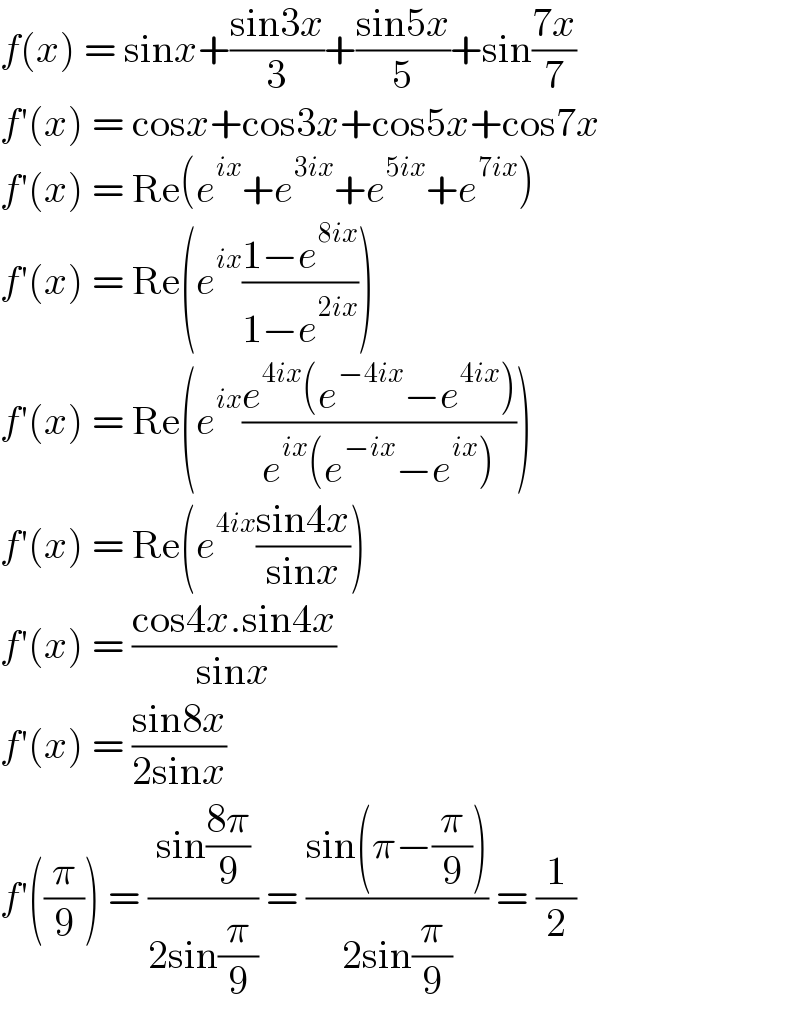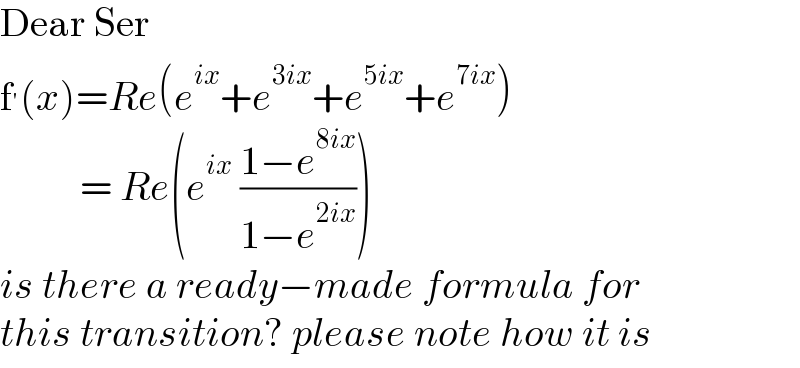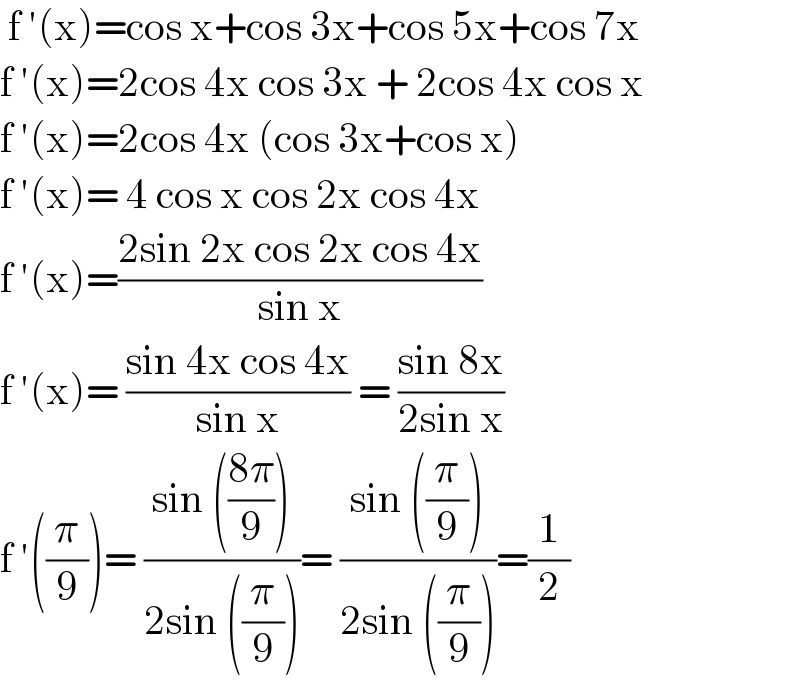
Question and Answers Forum
Question Number 151858 by mathdanisur last updated on 23/Aug/21

Answered by Olaf_Thorendsen last updated on 23/Aug/21

Commented by mathdanisur last updated on 23/Aug/21

Commented by Olaf_Thorendsen last updated on 24/Aug/21

Commented by mathdanisur last updated on 24/Aug/21

Commented by mathdanisur last updated on 24/Aug/21

Answered by john_santu last updated on 24/Aug/21

Commented by mathdanisur last updated on 24/Aug/21

